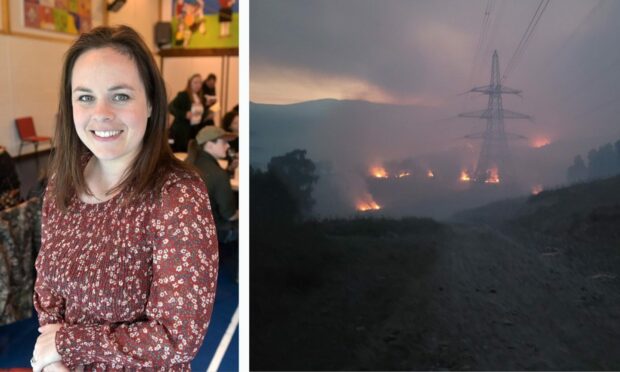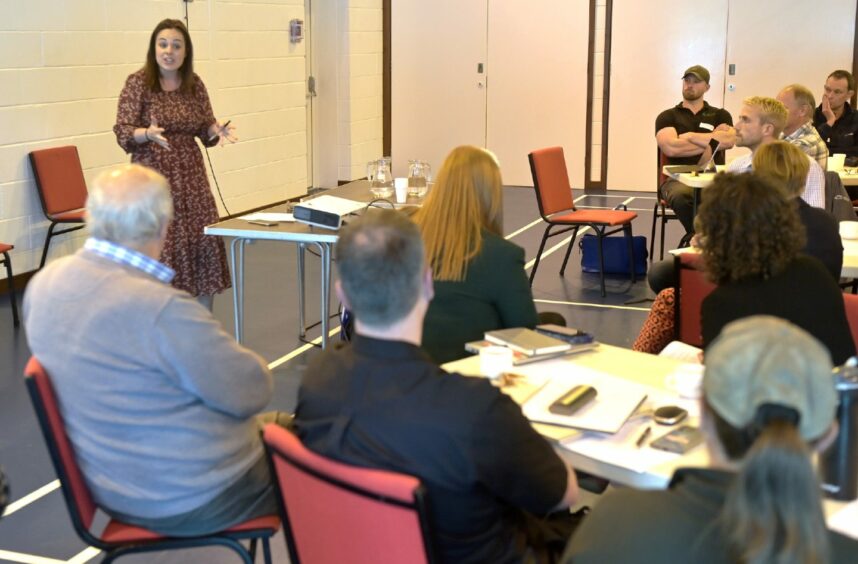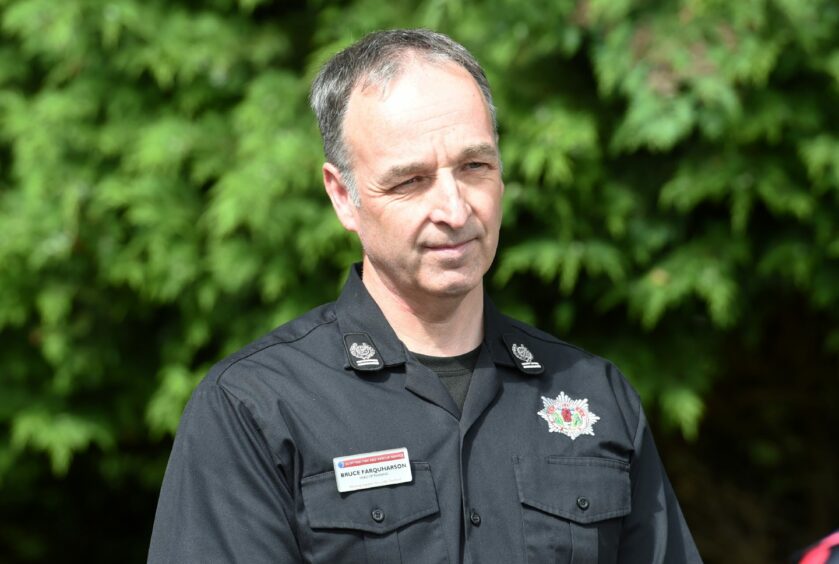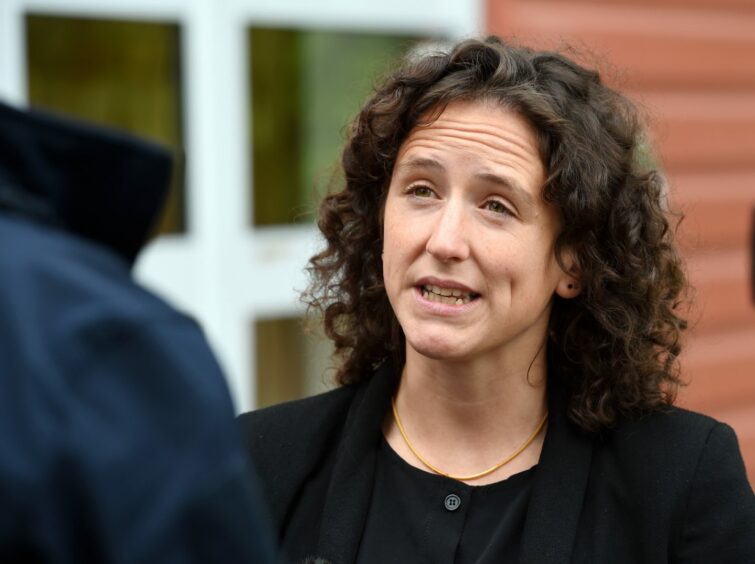A “positive first step” has been taken to address wildfire awareness and prevention at a summit in the Highlands.
The event hosted by Highland MSP Kate Forbes at Kiltarlity Hall, brought together relevant organisations to discuss how to tackle future wildfires.
These included NatureScot, Forestry and Land Scotland, RSPB Scotland and Scottish Fire and Rescue Service (SFRS).
Mrs Forbes was keen to host the event following the recent wildfires in Cannich and Daviot, which left large areas of the Highlands blackened and scorched.
The aim was to “learn the lessons” of the co-ordinated response and implement a strategy for the future.
She said: “We heard some very stark messages about the fact that wildfires are likely to get more intense, longer and more frequent unless action is taken and that is quite concerning.”
‘We want to make sure our communities are safe’
Bruce Farquharson, head of training at SFRS, echoed those concerns that climate change was a major factor in the increase in wildfires.
He said: “What we are seeing is an elongated growing spell for the fuel/vegetation, so warmer wetter winters and hotter drier summers equals more fuel growing, drying out, and so there is more stuff to burn, making the fires much more extreme and harder to deal with.
“The number of fires isn’t necessarily increasing, but the size and severity definitely is.”
Mr Farquharson says “good quality guidance” and limiting fuel sources through a “managed landscape” would help tackle future wildfires.
Learning from the Cannich wildfire, Mr Farquharson says communication amongst the different agencies involved was a key topic during the summit.
Wildfires increasing in ‘size and severity’
Also at the summit was Mairi Gougeon, Cabinet Secretary for Rural Affairs, Land Reform and Islands, who said the frequency of wildfires will continue increasing.
She says a “proportionate response” is needed to tackle irresponsible behaviour, including lighting fires in fire-prone areas.
Ms Gougeon was also concerned that the increase in wildfires could deter visitors to the Highlands as well as impact residents.
“It is a concern, but it’s predominantly for the people who live and work here.
“We want to make sure our communities are safe and some of the recent incidents we have seen, they came incredibly close to people’s homes and so we have to make sure our communities, land owners and land managers are resilient.”
The Scottish Outdoor Access Code sets out the rights of people when it comes to issues related to outdoor land, including starting fires.
Mrs Forbes says while the code is clear the issue is with enforcement and that people may be aware of their rights but not their responsibilities.
The summit was hailed as a “positive step” in getting the relevant parties together to discuss how to move forward and limit the damage, devastating wildfires could cause in the future.



